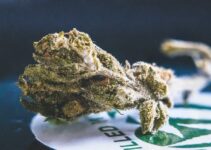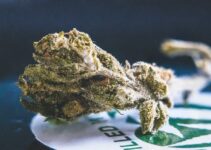I've learned about the potential risks of mixing delta 8 THC, a popular cannabis variant, with anticoagulant medications. It's crucial to understand how these substances interact and the possible impact on health. This article will delve into the risks, potential interactions, and how to manage the use of delta 8 THC and anticoagulants. Remember, seeking professional guidance is essential for anyone considering or currently using these substances.
Key Takeaways
- Delta 8 THC is a cannabis variant with milder psychotropic effects than Delta 9 THC.
- Anticoagulants work by slowing the body's clotting process and can be lifesaving for individuals at risk of heart attacks or strokes.
- THC variants can interact with anticoagulants and impact their effectiveness, potentially increasing the risk of bleeding or clotting.
- Adjusting the dosage of delta 8 THC and anticoagulants and consulting with a healthcare professional is crucial for managing their potential interactions.
Understanding Delta 8 THC
When considering the potential interactions between anticoagulants and THC variants, such as Delta 8 THC, it is critical to understand the specific effects and mechanisms of this cannabinoid. Delta 8 THC is gaining attention due to its milder psychotropic effects compared to Delta 9 THC. Its legal status is complex and varies by state, with some allowing it under specific conditions. Medically, it shows promise in reducing nausea and stimulating appetite, making it potentially beneficial for cancer patients undergoing chemotherapy. Chemically, it differs from Delta 9 THC by only a few atomic bonds, but this variance impacts its overall effects. Consumption methods include inhalation, ingestion, and topical application, and while it is increasingly available in the market, its regulation and quality can vary widely, posing potential risks for consumers. Understanding these aspects is crucial for assessing its potential interactions with anticoagulants.
Risks of Anticoagulant Use
Continuing from the discussion of Delta 8 THC, it is important to recognize the potential risks associated with the use of anticoagulants. As someone taking blood thinners, I understand the critical need to balance the benefits of preventing harmful clots with the potential risks. Anticoagulants work by slowing the body's clotting process, which can be lifesaving for individuals at risk of heart attacks or strokes. However, it's crucial to be aware of the potential clotting risks associated with these medications. In some cases, anticoagulants can lead to excessive bleeding, which may pose serious health concerns. Therefore, it's essential to work closely with healthcare providers to monitor and manage the use of blood thinners, ensuring that the benefits outweigh the potential risks.
Potential Interactions to Consider
Monitoring the potential interactions between THC variants and anticoagulants is crucial for managing the risks associated with blood thinner use. Drug interactions between THC and anticoagulants can impact the effectiveness of the anticoagulant, potentially leading to an increased risk of bleeding or clotting. Dosing adjustments may be necessary to maintain the desired anticoagulant effect while using THC variants. It's important to consult with a healthcare provider to discuss any potential interactions and determine the appropriate course of action. Regular monitoring of blood clotting parameters may also be advisable to ensure the anticoagulant is working effectively and to detect any changes that may require dosage adjustments. Understanding and managing these potential interactions is essential for safe and effective use of both THC variants and anticoagulants.
In the subsequent section, I will delve into strategies for managing delta 8 THC and anticoagulant use.
Managing Delta 8 THC and Anticoagulant Use
Considering the potential interactions identified, adjusting the dosage of delta 8 THC and anticoagulants may be necessary to maintain their effectiveness and minimize the risk of adverse outcomes. It's crucial to consult with a healthcare professional for medical supervision when managing the use of these substances. When it comes to delta 8 THC dosage, it's important to start with a low amount and gradually increase while closely monitoring for any adverse effects or changes in the effectiveness of anticoagulants. Managing side effects is essential, and any concerning symptoms should be reported to a healthcare provider immediately. Despite potential benefits, careful attention to drug interactions is paramount. Overall, finding the right balance and ensuring proper management under medical supervision is key to safely using delta 8 THC alongside anticoagulants.
Seeking Professional Guidance
- I strongly recommend consulting a healthcare professional for personalized guidance regarding the use of delta 8 THC and anticoagulants.
Seeking professional consultation for medication management is crucial when dealing with the potential interactions between delta 8 THC and anticoagulants. Here's why it's essential:
- Personalized Advice: A healthcare professional can assess your specific medical history, current medications, and individual needs to provide tailored recommendations for managing delta 8 THC and anticoagulants.
- Risk Assessment: They can evaluate the potential risks and benefits of using delta 8 THC alongside anticoagulants, helping you make informed decisions about your treatment plan.
- Medication Adjustment: A healthcare professional can monitor your medication regimen, making any necessary adjustments to ensure the safe and effective use of both delta 8 THC and anticoagulants.
Frequently Asked Questions
Can I Use CBD Products While Taking Anticoagulants?
I can use CBD products while taking anticoagulants, but it's important to consider potential risks and benefits. It's crucial to seek medical advice to ensure anticoagulant safety and understand any potential interactions.
Are There Any Specific Food or Drug Interactions to Be Aware of When Using Delta 8 THC and Anticoagulants Together?
When using delta 8 THC and anticoagulants together, I need to be cautious about potential drug interactions and dietary restrictions. It's important to consider delta 8 THC metabolism and medication dosage for safe use.
How Long Should I Wait After Using Delta 8 THC Before Taking My Anticoagulant Medication?
I wait at least a few hours after my Delta 8 THC dosing before taking my anticoagulant medication. It's essential to avoid potential interactions with other medications and minimize potential side effects. Timing of anticoagulant intake is crucial.
Are There Any Alternative Treatments or Supplements That Can Be Used Instead of Delta 8 THC for Managing Symptoms While on Anticoagulants?
I'd explore alternative therapies, herbal supplements, natural remedies, dietary changes, and lifestyle modifications to manage symptoms while on anticoagulants. These approaches may offer effective options with fewer potential interactions. Always consult a healthcare professional before making changes.
How Does the Use of Delta 8 THC and Anticoagulants Affect Different Age Groups or Demographics?
Using delta 8 THC with anticoagulants may have different effects based on age. Elderly individuals might experience increased bleeding risk, while children could be at risk for potential developmental and cognitive issues.
Conclusion
As someone who uses Delta 8 THC and anticoagulants, it's important to be aware of potential interactions between the two. It's crucial to seek professional guidance and carefully manage the use of these substances to avoid any adverse effects. Understanding the risks and taking necessary precautions can help ensure your safety and well-being.





